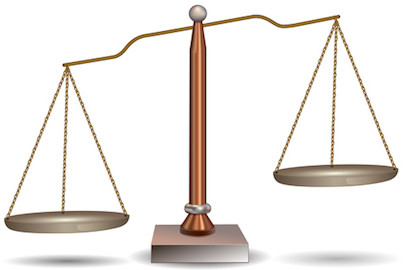About two years ago, pondering some of my new managerly duties, I wondered, “How do you rank employees?”
Every year I have to rank employees and make tough decisions: Should we extend that internship? Should we promote that developer? How will we distribute raises?
I can’t manage based on my gut. It’s not enough to feel good or icky about someone. What then are the alternatives?
Near the top of the list is metrics. Measure the output—somehow—and use that to decide this employee deserves a raise and this one needs a performance plan. The rest of this post is the document I use to introduce my employees to my position on measuring performance.
I Measure You
I’m Paid to Measure You
I’ve said it! I measure you.
You should already know it’s true. Every year I am responsible for evaluating performance, ranking employees, and playing a key role in deciding who gets promoted, who gets a raise, and who gets put on a performance improvement plan.
It’s my job.
I have to make many of this kind of decision. We ought to try to make them really good ones.
Despite Difficulty We Must Measure
Certainly we can find weaknesses in any measurement scheme. It’s a given that any measurement won’t be perfect. Since we can’t make a perfect measurement should we not measure at all?
If we don’t measure then the same choices still have to be made but now completely from the gut. I had a professor that said,
If you don’t give your boss information he doesn’t stop making decisions. He just makes those decisions on less information.
No, we shouldn’t stop trying to measure performance. Adapting my favorite maxim about models we can say:
All performance measurements are wrong. But some are useful.
When I’m being measured I wonder, “What do I look like in this measurement? Is it fair? How can I improve my score?” When I do the measuring I wonder, “Is this the best measurement I can do? Is it fair? Does it motivate and reward effective behavior?”
Measuring performance can be an uncomfortable topic. Some people will have angst around any way of measuring performance. Any measure I make will have weaknesses. Still I have to make the decisions. I’m going to make measurements.
Policy: I Measure Responsibly
Knowing that measurements are flawed I always interpret them as a part of a larger picture. I use them to help me know what questions to ask. I use them to inform my final evaluation. After I’ve measured, considered, and discussed performance my final evaluation is based on what I ultimately believe to be true.
Measurements inform my thinking. Measurements don’t replace my judgment.
I’m Open
We have to measure. I’m paid to do the measuring. I’ll do my best to come up with fair, effective measurements. I’ll let you know how I’m measuring and where you stand.
The measurement process is not up for abolition. It is up for improvement. Let’s talk as you think of better ways to quantify the value you give.

